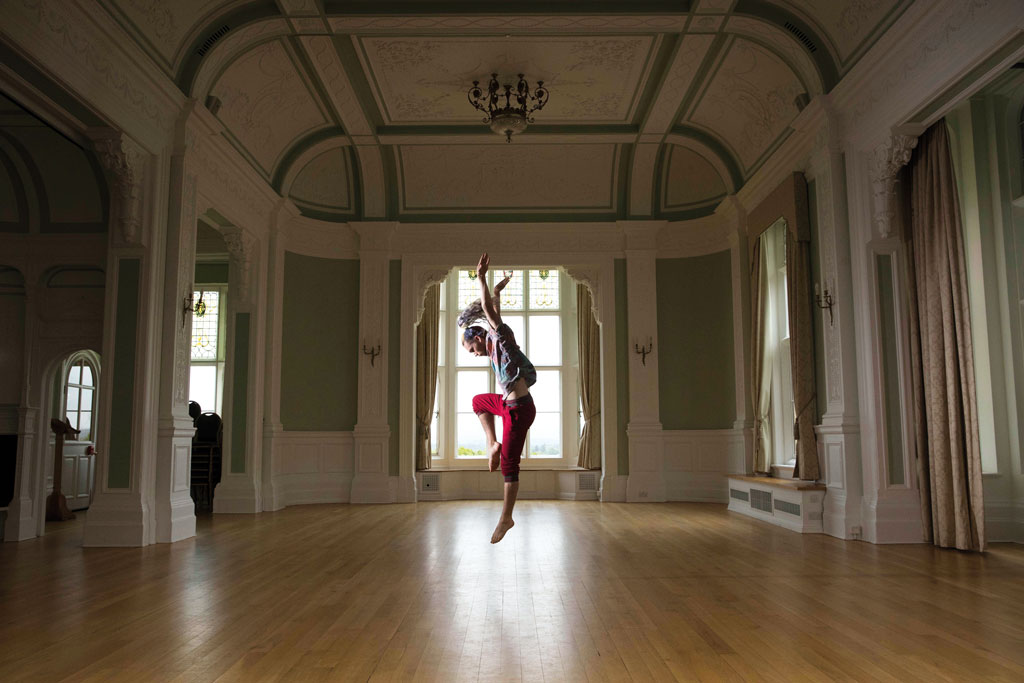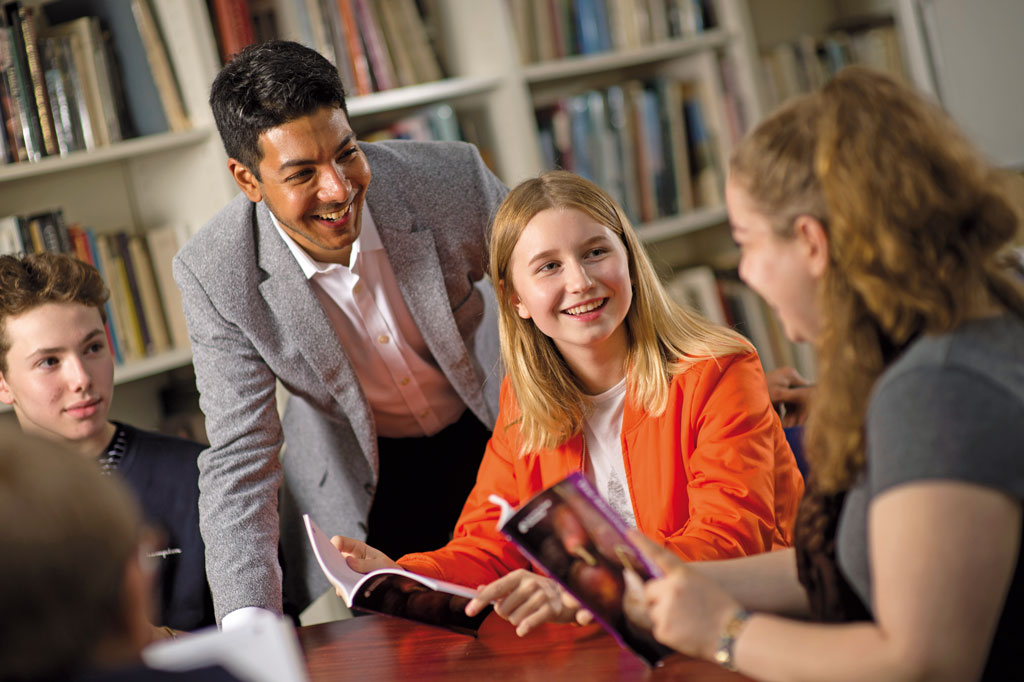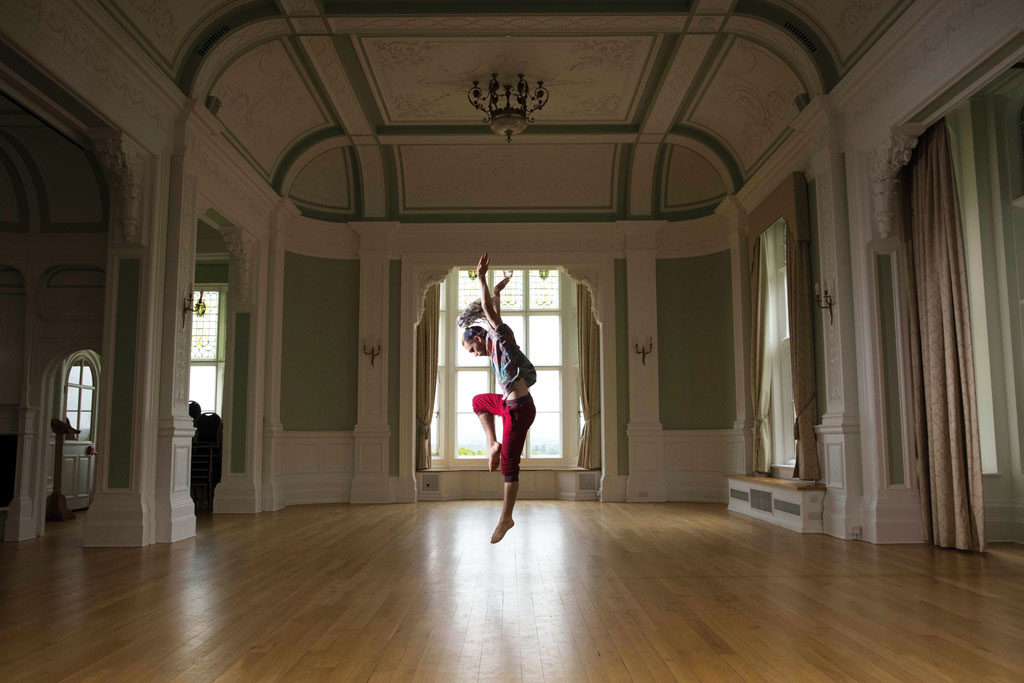Alternative Schools: Thinking Outside the Box
By
6 years ago
Charlotte Fairburn looks at schools breaking the mould

Charlotte Fairburn looks at schools breaking the mould
In 1893, when John Haden Badley founded Bedales School, he focused his educational doctrine on the three Hs: ‘Head, Hand and Heart’. The child should be taught to make, to think, to feel.
A contemporary of Maria Montessori and Rudolf Steiner, Badley was at the forefront of a visionary educational approach, one reacting to the grim disciplinarianism of the Victorian era. It was the ushering in of an entirely new approach to education, one where the child really mattered.
As Montessori wrote in her volume ‘The Absorbent Mind’,
‘The teacher’s task is not to talk, but to prepare and arrange a series of motives for cultural activity in a special environment made for the child.’
At the turn of the 20th century, these ideas were progressive if not revolutionary. And today, their spark of originality still burns bright.
The Progressive Route
So here we are over 100 years later and you are a ‘progressive’ parent. For one reason or another, you seek new and alternative opportunities for your child. Perhaps a straight academic route is not the path you seek.

Your child is exceptionally creative. Or outdoorsy. Or outspoken. Perhaps you had a horror of the strictures of your experience at school. Perhaps you find our exam system too narrow or too relentless.
You want your child to have the opportunity to become an individual rather than a typical alumnus of a particular independent school. Is it possible to look for this in a school without sacrificing the academic standards so adamantly required by our modern world? Is it a good idea to promote informality between pupil and teacher, when all around, formality and structure are the very bedrock of the corporate universe?
Switching up the Syllabus
How far Badley could see into the educational future is a moot point but Bedales is still a school that pioneers. Continually evolving, Bedales has created its own curriculum. BAC – Bedales Assessed Courses – were designed in-house, draw on their own syllabus and are accepted by UCAS. As a student, you study core subjects such as English and Maths, but around those, you can branch out and study Global Awareness or Design (Product or Fashion), for example.
Rob Reynolds, Director of External Relations at the school, points particularly towards their course in Philosophy, Religion and Ethics. At some point in this syllabus, the students are required to design their own Utopia. ‘This has proved a hugely popular A-level subject – and this in spite of the fact that at Bedales, we have no chapel.’
Magnus Bashaarat, outgoing head of Milton Abbey [to become head of Bedales], believes that moving away from the nine or ten GCSEs path bears genuinely fruitful results.
‘GCSEs are no discriminator. Likewise, A levels – you might choose geography because you don’t mind it, maths because someone has told you it’s useful, politics because you have never done it before.’
‘Or you could choose a subject like Creative Media Production – one we offer here at Milton Abbey – and instead of wandering into university and a rather vague-sounding degree, you could go – as some of our students have – to Teesside, read Computer Game Design and walk straight into working within a competitive and expanding industry.’

Fine Arts College ensures that many of the creative subjects are taught by professionals
Your Child Comes First
One of the recurring themes that crops up among the schools approached for this article is that of confidence. The innovative school puts the child at the centre of its ethos – and this gives huge confidence. Milton Abbey looked at maths GCSE retakes and found that once a student had failed maths, they were likely to do so again.
‘Repeated failure is no good,’ says Bashaarat. The school used a different form of exam, the Functional Skills Maths Pathway, to enable these struggling mathematicians to succeed. Their results, says Bashaarat, have more than vindicated this alternative approach.
Confidence comes, too, not from vocational study but from good teachers. Hampton Court House head, Guy Holloway, is vehement on this subject: ‘In recent times,’ he says, ‘much has been written on the need for an improved curriculum. But surprisingly little has been asked about what personal qualities we should be looking for [or developing] in our teachers.’
Teachers Make All the Difference
‘I really believe that increasing professionalisation within teaching means the loss of those teachers who can inspire you; the intellectuals who really know and love their subject; the mavericks.’
‘OK, they may not be good at taking register – but an inspirational teacher can change your life.’
‘I feel strongly about this because I was frequently a failure at school. And but for a couple of great teachers, I might have remained one. So here at HCH, we do not choose teachers because they are Key Stage II trained, but because they are inspirational.’
This outlook will chime for many parents. Perhaps the reason you are casting around for a school wth something extra is precisely that: you want some spark of quirkiness or eccentricity to be added to your child’s formative years.
Add to this the fact that HCH offers fully bilingual lessons (English/French) between Years One to Four; and that it is a pioneer in offering afternoon school for sixth-form pupils and, yes, you do have a school that is doing things differently. (This latter policy of shaping teaching hours to the adolescent body clock is now being picked up by several other schools following proven improvement in student productivity and alertness.)
Is Informality Beneficial?
Like Bedales, Frensham Heights, in Surrey, is a school that focuses on the creative spirit and fosters informal relations between pupil and teacher. That this informality – first name terms with teachers, no uniform, little hierarchy – bears results is something that Hugo Laward Horsfall, a graduate of the school, would firmly advocate.

Frensham Heights fosters informal relations between pupil and teacher
‘Being able to talk to your teachers with no “them-and-us” mentality meant that school was a lovely environment to grow up in.’ Laward Horsfall, at 26, is studying to be a doctor, founded a mental health charity (happyspace.org.uk) and has worked on creating a Thinktank, the Centre for Social Justice.
‘Frensham gave me the tools to do anything I wanted. We were not spoon-fed and we were not heavily pressurised. I have friends who went to other, “more conventional” schools and I really believe that I have an advantage over them. At Frensham’s, you can do whatever you want, so long as you enjoy it.’
Relishing Responsibility
Self-determination is also promoted very much at St Christopher School in Hertfordshire. Here the principle of ‘speaking truth to power’, valued by its Quaker founders Eleanor and Lyn Harris still prevails and the school is ‘self-governed’. As head Richard Palmer writes: ‘Self-government
is about more than the Council and School Meetings. It is about the relationship between freedom and responsibility.’
And then there is vocational study. Consider The Fine Arts College which leans heavily towards the arts; Orlando Bloom is an alumnus. Head Candida Cave sees to it that many of the creative subjects are taught not by teachers but by professionals, practising actors or musicians. ‘We want our students to realise that the creative process is outside of the exam system.’
Unleashing Creativity
Like Bedales, the consistently high performing Brighton College runs its own courses. The Story of our Land – an in-school created module (designed for pupils in year three) encompasses history, geography, philosophy and religion and tells the story of Britain from the beginning of time.
‘The course has been a huge success,’ says Deputy Head Leah Hamblett, ‘to the extent that we have developed a further module, Our Island Story which is taught to pupils in sixth form.’ Head Richard Cairns is known for championing new ideas like entrepreneurship.
‘We do not want to listen to the government saying Great Britain does not produce enough and not respond,’ explains Hamblett. On a more day-to-day level, the school has strong policies on kindness. ‘A happier school gets better results,’ she adds.
Taking an even more holistic approach, Rochester Independent College – and its founders, maths teachers Brian Pain and Simon de Belder – have shaped their campus to reflect the school’s ethos. Children do not sit in rows but round tables.
Igloo-shaped classrooms are linked by wildlife gardens. Like Frensham Heights, Rochester has no uniform and students are on first name terms with teachers. The average class size is eight.
Functional Innovation
Breaking the mould is of course a subjective term. To send your child to a single-sex school nowadays could be considered radical. And yet if you look at the results of the schools within the 23-strong Girls’ Day School Trust, you might see that for those 19,000 girls across the country, single-sex education makes absolute sense.
In the debate about women and their success in high places, you might take your hat off to Eton for appointing Susan Wijeratna as its Lower Master – challenging time-honoured tradition and shaking up old preconceptions. World Atlantic College, in Cardiff, prides itself on its international intake.
Oundle, while arguably a more conventional school in the academic sense, runs a remarkable Community Action programme ‘leaving many of its participants with a lasting commitment to civic responsibility,’ says programme director Liz Turnbull.
Changing hours, changing syllabus, growing openness in staff-pupil relations – these are not flashes in the pan. Yes, it is a crowded marketplace, as cited by Magnus Bashaarat, and yes, there is a need for schools to stand out in some way.
But the marketplace needs to be fit for purpose – as Hugo Laward Horsfall (soon to be a governor of Frensham Heights, aged just 26) puts it,
‘Education is no longer about fostering information recall. It is much more about preparing students for the future. We need to keep innovating, to develop novel teaching strategies, to keep pushing educational boundaries.’
This article originally appeared in the AW18 issue of School House.
READ MORE: The Best British Schools for Dyslexia Support | The Best Specialist Colleges and Universities



